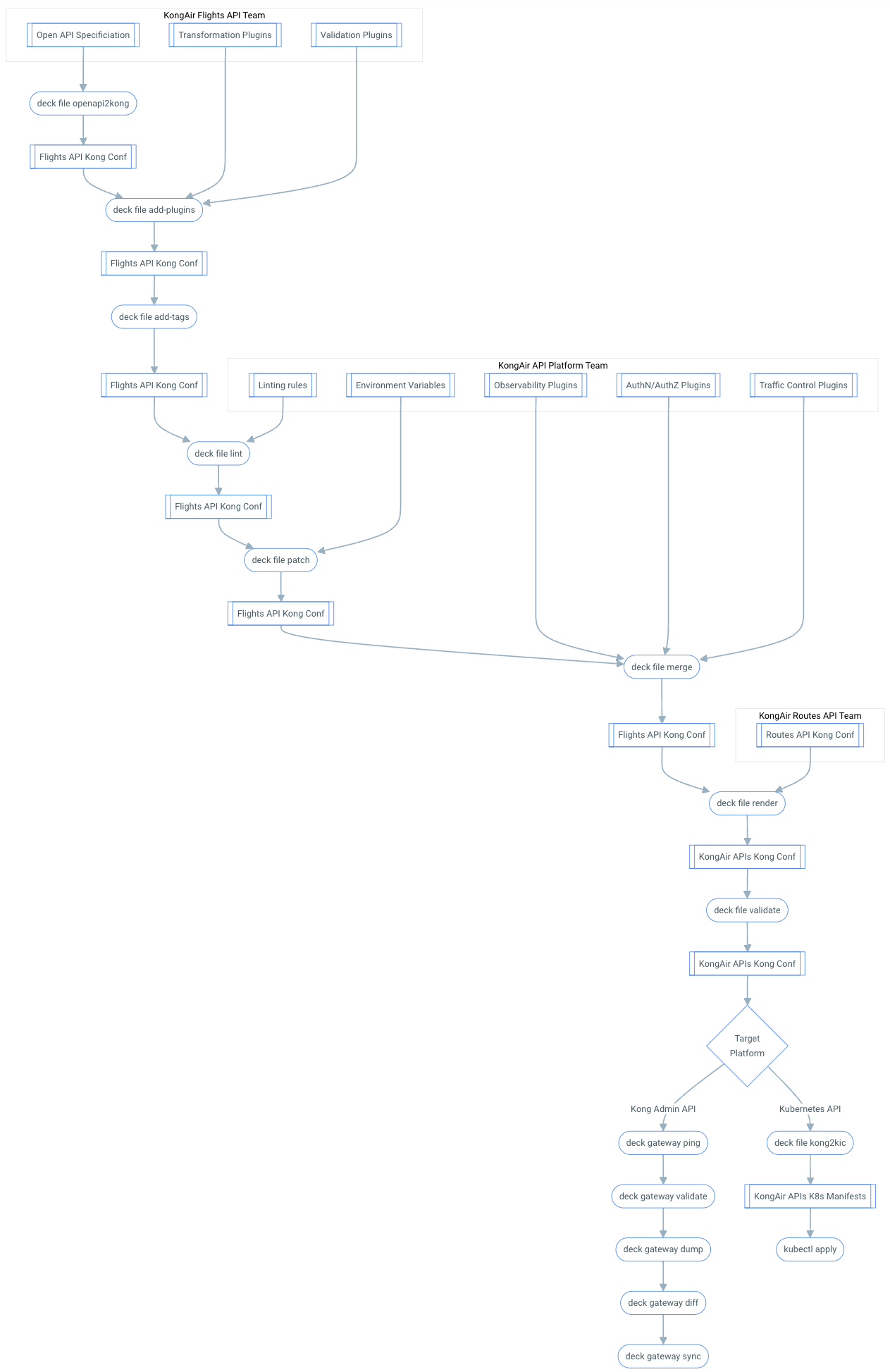The latest release of decK's APIOps features with the Kong Ingress Controller advances API management and automation in Kubernetes environments. This blog post delves into how this integration streamlines operations, ensuring a more feature-rich API lifecycle management.
The role of decK in APIOps
For teams utilizing the Kong Ingress Controller, Kubernetes manifests have been the standard method for configuration. While effective, this approach limited their access to the suite of APIOps features that decK offers.
decK is the command-line tool engineered to automate and orchestrate the entire API delivery process. It works with state files, which are declarative representations of the Kong Gateway configuration. These files cover all aspects of the API setup, including services, routes, plugins, and consumers, thereby defining the routing and processing logic for requests.
decK commands at a Glance
The decK commands are organized into three categories:
- Configuration Generation: Commands like
deck file openapi2kong translate OpenAPI specifications into decK's native state files. This step sets the stage for configuration transformation and state management commands. - Configuration Transformation: This is the suite of commands designed to refine and tailor the decK configuration files. Tools such as
deck file add-plugins and deck file merge enable teams to break down and reassemble their configurations. - Gateway State Management: The final stages in an APIOps pipeline involve synchronizing the state files with the intended platform, whether it's Kong Konnect, Kong Gateway, or the Kong Ingress Controller. Commands like
deck gateway sync align the Kong environment with the decK configuration.
Bridging the Gap: deck file kong2kic
A standout feature in the latest decK release is the deck file kong2kic command. This tool acts as a bridge, converting Kong configuration files into Kubernetes manifests for the Kong Ingress Controller. It enables API teams to utilize decK's APIOps features within their Kubernetes-centric workflows.










